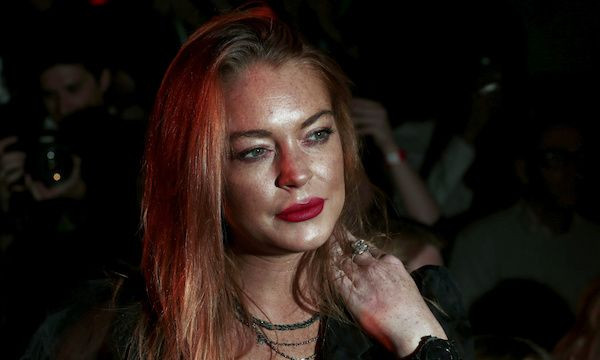‘GTA 5’ Lacey Jonas Lawsuit: Lindsay Lohan Loses Case Against Take-Two

Hollywood star Lindsay Lohan’s lawsuit against publisher Take-Two Interactive has been unanimously rejected by the highest court of the state of New York. The actress’ case was pushing for her likeness to a “Grand Theft Auto 5” character, named Lacey Jonas.
On Saturday, Polygon learned that six judges of the New York Court of Appeals upheld the lower court’s ruling over Lohan’s claim that the makers of the game based Jonas on her appearance. The lower court’s ruling rejected the controversial celebrity’s lawsuit.
Lohan first raised her complaint against Take-Two in 2014. The actress claimed that Jonas was unlawfully based on her likeness, specifically her voice and her clothing style. There’s also the issue with the character’s representation mirroring Lohan’s career. Like the actress, the video game character is known for her quick rise to fame and her notable presence in tabloid media. However, Take-Two responded at the time that what Lohan did was simply a publicity stunt.
Lohan’s case managed to dodge a motion for dismissal in 2016, but a New York Supreme Court judge ruled against the actress. The decision was then affirmed in the state’s appellate division. Then just this past Thursday, March 29, the Court of Appeals upheld the ruling, which was against Lohan’s claim.
In Lohan and her legal team’s complaint, they argued that the “really famous actress slash singer” named Jonas in “GTA 5” evoked the actress’ “image, portrait and persona.” Lohan also argued that the game’s distributed promotional materials featured the character without her written consent.
Although the Court of Appeals said that a video game avatar may constitute a portrait, the characterization of Jonas were “indistinct, satirical representations of the style, look and persona of a modern, beach-going young woman that are not reasonably identifiable as plaintiff.”
Lohan could still pursue the case by appealing to the U.S. Supreme Court. But this time she would need to show how the ruling against her case and the state’s privacy laws conflict with a precedent or an overriding Constitutional law. Meanwhile, Rockstar Games, the developer of “GTA 5,” maintains that any likeness of their characters to real people are coincidental, as per the Independent.
© Copyright IBTimes 2024. All rights reserved.





















